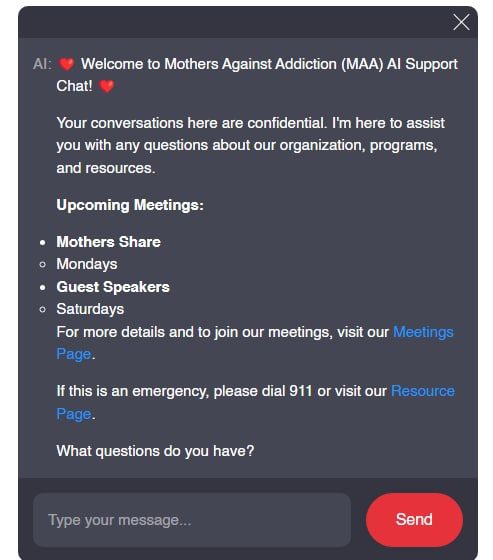Addiction affects millions of families around the globe, and understanding the journey of healing can be a crucial step for those impacted. We need to collect diverse perspectives to appreciate this extraordinary journey. Stories from individuals in recovery, their families, and experts in the field illuminate the different stages people encounter. This narrative isn’t one-size-fits-all; each unique experience offers essential insights that help us grasp the healing process.
Imagine a mother discussing her son’s struggle with addiction. Her journey is laced with heartache and hope, and through her story, we can understand how addiction not only touches the individual but also ripples across entire families. Engaging with these perspectives helps us realize that recovery is not a solitary effort but a community endeavor that fosters empathy and support.
Collecting perspectives means opening our hearts and minds to the stories of others. Personal experiences of addiction recovery give us a lens to view the struggles and triumphs unique to each person’s path. When we listen, we learn resilience, love, and the genuine fight for a better tomorrow.

Eliminating Stigmas: The Role of Education in Healing
The weight of stigma often suffocates healing. By taking steps to eliminate misunderstandings surrounding addiction, we reshape public perception and create gateways to recovery. Initiatives like the “Truth About Addiction” campaign educate communities, emphasizing that addiction is a chronic disease—much like diabetes or hypertension—rather than a moral failing.
These educational campaigns are pivotal because they foster community understanding and build stronger support systems for families grappling with addiction. When families understand they’re not alone, they can advocate for their loved ones more effectively, creating an environment that promotes recovery.
A good example of a public figure tackling stigma is Eric Clapton. After facing his own battles with addiction, Clapton transformed his pain into art, using his platform to educate millions about the realities of addiction. Stories like his not only collect attention but also encourage conversations that matter, helping to break down the barriers of judgment.

Defining the Healing Journey: Stages of Recovery
Addiction recovery isn’t a straight line; it’s more like a winding road filled with hills, valleys, and occasional detours. To define this journey, we can refer to the Stages of Change model, outlining five distinct phases: Precontemplation, Contemplation, Preparation, Action, and Maintenance. Recognizing these stages allows individuals and families to navigate the ups and downs of recovery at their own pace.
In the Precontemplation phase, many people are unaware or unwilling to acknowledge their addiction, while those who’ve reached the Maintenance phase actively work to sustain their recovery. Each step is filled with challenges and victories that shape the healing experience. Think of it like a team sport: everyone plays a role, influencing success and progress.
Spending time to understand these stages helps families, support groups, and treatment providers guide individuals toward healthier choices. It’s about collecting insights along the way and figuring out how to support loved ones through thick and thin.
Persuading Change: The Power of Support Networks
When it comes to addiction recovery, the power of community cannot be overstated. Persuading individuals to strive for positive change often hinges on the strength of their support networks. Research shows that participation in peer support groups, like Alcoholics Anonymous (AA) or Narcotics Anonymous (NA), significantly increases the likelihood of long-term recovery.
High-profile figures like Brad Paisley and his wife, Kimberly, demonstrate how support systems can transform lives. Their commitment to advocating for mental health and addiction awareness not only resonates with fans but also inspires others to seek help. The Pascales share their story, reminding us that being surrounded by understanding can motivate individuals to pursue recovery, as it can often feel like a solitary struggle without it.
This same sentiment rings true in programs like SMART Recovery, which help individuals leverage their support networks. By teaching techniques to enhance motivation and build self-empowerment, they create a foundation for sustained recovery. Connection is a vital ingredient in the recipe for success.
Know the Resources: Treatment Options Available
Having a good handle on available resources can make a world of difference in the recovery journey. Parents and loved ones should know the spectrum of treatment options available, ranging from outpatient rehabilitation programs to holistic therapies. Programs like the Hazelden Betty Ford Foundation offer a blend of evidence-based practices and personalized therapy, creating a fertile ground for recovery to blossom.
Access to professional guidance is another essential piece of the puzzle. Online platforms like Therapy Aid Coalition step in where local resources are thin, supporting individuals and families in their quest for help. Understanding the array of options doesn’t just empower families; it equips them to make informed decisions that resonate with their loved ones’ needs.
Through informed choices and resources, families can actively participate in the healing journey. It’s about creating pathways that lead to hope and healing.
Taking Steps: Practical Advice for Families
Families often play a crucial role during their loved ones’ struggles with addiction. To help effectively, they must take proactive steps. One useful approach is the CRAFT model (Community Reinforcement and Family Training). This method strengthens communication, encourages positive behaviors, and positions families to engage positively with their struggling loved ones.
By focusing on understanding addiction without judgment, families become sources of strength. Navigating this journey together empowers loved ones to overcome their challenges, making it an indispensable tool in promoting recovery.
One practical tip for families is to celebrate even the small victories along the way. Whether it’s a day of sobriety or merely having an open conversation about struggles, recognizing these moments fosters resilience and reinforces the recovery journey.
Embracing the Future: Innovative Approaches to Recovery
As we look ahead, there’s a world of innovation coming into play within addiction recovery. Integrating technology can collect and enhance treatment options immensely. For instance, apps like Sober Grid create social networks where individuals in recovery can connect, share achievements, and locate local resources.
Innovative approaches like virtual reality therapy have also emerged, allowing individuals to confront addiction-related challenges in controlled and supportive environments. Such creative methods make the journey more engaging and accessible, especially for those hesitant to seek traditional treatment.
As technology evolves, so too do the pathways to healing. By embracing these innovations, we create a future where recovery is celebrated, more accessible, and ultimately transformative.
In mapping out the extraordinary journey of addiction healing, we recognize that recovery is not a destination but a continuous, evolving process. Each narrative adds a layer of depth to our understanding and encourages collective efforts in breaking down stigmas, promoting awareness, and supporting one another through this profoundly transformative journey. By remaining engaged and informed, we can all contribute to a future where healing from addiction is not only possible but also celebrated.
Collect the Extraordinary Journey of Addiction Healing
Collecting Strength Through Stories
When we think of collecting, we often picture a hoard of items, but collecting stories can be just as valuable, especially in the journeys of healing from addiction. Each story holds a piece of someone’s heart and helps illuminate the path others might tread. For instance, empirically backed approaches teach us that shared experiences drastically improve support systems. Every family has its saga, and the wisdom gleaned from these narratives can empower others facing similar battles. Speaking of empowerment, many are inspired by Martin Luther King quotes, which emphasize hope and resilience—perfect reminders for anyone on the road to recovery.
Collecting Resources for Recovery
In addiction recovery, gathering resources can make all the difference. Many individuals and families find tangible support through tools designed for effective healing, like SMART objectives, which help create actionable goals. This structured approach can feel comforting amidst the chaos of recovery. Additionally, the entertainment industry offers valuable insights—like the experience of the cast of “Joker: Folie à Deux” which dives deep into themes of mental health. Those crafting their healing journeys can take inspiration from creative representations of struggles.
Collecting Wisdom and Support
Lastly, understanding the emotional and physical aspects of recovery is crucial. For example, knowing how to stop yourself from throwing up can be an essential tip for those who face withdrawal symptoms. Sometimes, the smallest insights can guide us through tough moments. Life’s unpredictability means that people might need to seek wisdom from various realms, just as understanding current presidential polls can give context to societal attitudes towards addiction and recovery. And, of course, let’s not forget about the human stories behind the headlines, like those of artists like Brad Paisley’s wife, who exemplify the power of love and support in healing journeys.
Collectively, these nuggets of wisdom, experience, and support weave a tapestry of resilience, illustrating that recovery is not a destination but a continuous journey. As we collect these stories and resources, we remind ourselves and others that hope can shine even in the darkest times.





























